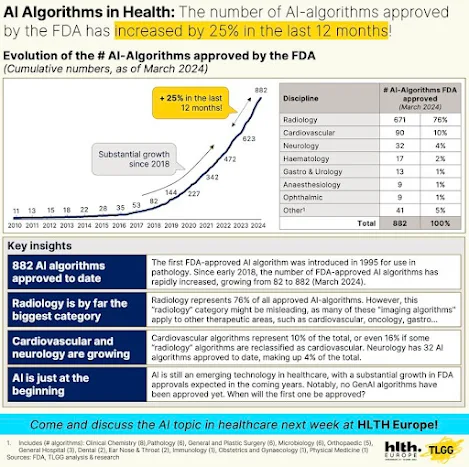The FDA has recently released a new batch of approvals for AI algorithms in healthcare, and the exponential growth continues!
Software designed for medical use bears the burden of safety and accuracy
. The vetting process will be long.
AI/ML-Enabled Medical Devices
This list contains publicly available information on AI/ML-enabled devices.
Transparency for Machine Learning-Enabled Medical Devices: Guiding Principles
The FDA approval process is an arduous task and adds considerable cost to obtaining FDA approval. Even after approval, the FDA requires updates regarding medical device failure. The failure rate for ML or AI has yet to be determined.
Aberrant answers and hallucinations will be assessed carefully. The FDA will have to assign failure results. Inaccurate results that lead to death or serious injury as a result of AI. ML errors will need to be reported to the FDA much like the FDA reports used for drugs.


No comments:
Post a Comment